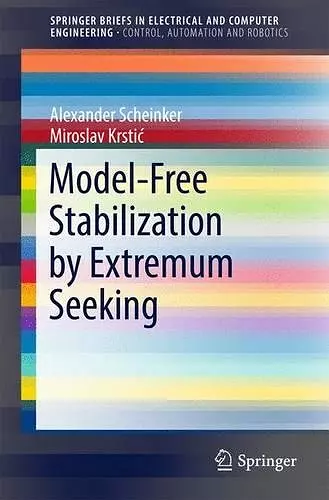Model-Free Stabilization by Extremum Seeking
Miroslav Krstic author Alexander Scheinker author
Format:Paperback
Publisher:Springer International Publishing AG
Published:30th Dec '16
Currently unavailable, and unfortunately no date known when it will be back

With this brief, the authors present algorithms for model-free stabilization of unstable dynamic systems. An extremum-seeking algorithm assigns the role of a cost function to the dynamic system’s control Lyapunov function (clf) aiming at its minimization. The minimization of the clf drives the clf to zero and achieves asymptotic stabilization. This approach does not rely on, or require knowledge of, the system model. Instead, it employs periodic perturbation signals, along with the clf. The same effect is achieved as by using clf-based feedback laws that profit from modeling knowledge, but in a time-average sense. Rather than use integrals of the systems vector field, we employ Lie-bracket-based (i.e., derivative-based) averaging.
The brief contains numerous examples and applications, including examples with unknown control directions and experiments with charged particle accelerators. It is intended for theoretical control engineers and mathematicians, and practitioners working in various industrial areas and in robotics.
“This monograph presents a novel extension and applications of extremum seeking, as a technique for the stabilization of unknown control systems, including trajectory tracking and on-line optimization. … The monograph will be useful to researchers and graduate students interested in extremum-seeking control and model-free and adaptive stabilization methods.” (Nicolas Hudon, Mathematical Reviews, November, 2018)
“The results of the book are based on the main theoretical results represented by the weak-limit averaging theorem that can be considered as an interesting alternative to other stabilization methods. The book is worth being consulted by mathematics and control theory students and researchers.” (Liviu Goraş, zbMATH 1380.37004, 2018)
ISBN: 9783319507897
Dimensions: unknown
Weight: 2234g
127 pages
1st ed. 2017